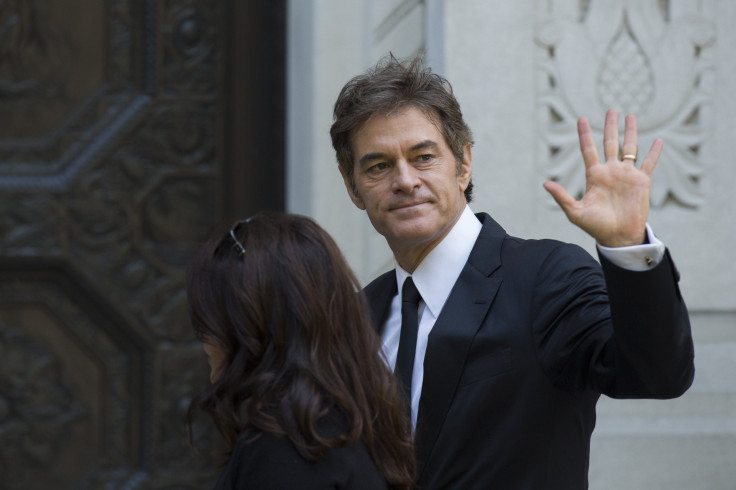Is Dr Oz A Quack? 'America's Doctor' Hits Back At Critics, And There Are A Lot Of Them

Dr. Mehmet Oz is not only the host of syndicated "The Dr. Oz Show," which has been on the air since 2009, he's also a heart surgeon and vice chairman of the department of surgery at Columbia University’s College of Physicians and Surgeons.
But "America's doctor" has a bad rep among physicians and scientists for what many call his uncritical -- and unprofessional -- shilling of and promotion of dubious "miracle cures," including diet pills with green coffee extract, which earned him a dressing down by Missouri Sen. Claire McCaskill during a Senate hearing on weight-loss pills, and for making false claims about high levels of arsenic in apple juice, which caused the FDA in 2011 to call his report "irresponsible and misleading."
On April 16, a group of 10 prominent physicians from around the country wrote to Columbia University's Dean of the Faculties of Health Sciences and Medicine seeking his removal from that position, accusing him of having “repeatedly shown disdain for science and for evidence-based medicine” and for shilling remedies that “misled and endangered” the public. And on Thursday, Oz hit back with an op-ed piece in Time in which he both defended himself and attacked the doctors who penned the poison letter, an accusation to which he will devote Thursday's show.
In the op-ed piece, Oz addresses his "voyage into the land of weight loss supplements," saying that he regrets promoting them and that he understands the criticism he has received. He also defends his exploration of alternative medicine, but claims he never suggested it should take the place of conventional medicine.
But mostly, Oz goes on the attack, laying out the results his hired investigator brings back about his accusers. Among his findings: The letter's primary author, Henry I. Miller, Oz alleges, has a history as a pro-biotech scientist and helped to defeat a proposal in California that sought to require that foods that had been genetically modified have GMO labeling -- a cause Dr. Oz supports.
Oz also alleges that letter-writer Gilbert Ross was found guilty after trial of 13 counts of fraud related to Medicaid, and that he's now the executive director of American Council on Science and Health, which Oz calls "a group that has reportedly received donations from big tobacco and food and agribusiness companies."
It remains to be seen what will come of Dr. Oz's defense, but a group of Columbia faculty, led by Michael Rosenbaum and Joan Bregstein, wrote their own op-ed piece addressing the concerns with Dr. Oz, published in USA Today.
Although they argue that he "sullies" their reputation and undermines the physician/patient contract by not always disclosing "conflicts of interest, medication side-effects and contraindications" or distinguishing "evidence-based from hypothetical applications,"they argue that his behavior doesn't warrant his removal as vice president.
"Non-evidence based medical recommendations presented without the appropriate caveats are costly and potentially harmful. However, unless these foibles can be shown to render Dr. Oz inadequate or ineffective at Columbia, there is no justification for forcing him to resign from a well-earned position in academic medicine."
Not exactly a ringing endorsement. It echoes a comment from the British Journal of Medicine, which found last year, reports Washington Post, that after selecting 40 episodes from "The Dr. Oz Show" and identifying 479 separate medical recommendations, that "evidence only supported 46 percent of his recommendations, contradicted 15 percent and wasn’t available for 39 percent." The researchers conceded it was difficult to separate out “what was said and what was implied.”
Dr. Oz actually used their response as a defense in his op-ed. BJM said that they were "disappointed" that people were drawing the conclusion from their report that Dr. Oz was a "quack," saying, "Our data in no way supports this conclusion."
If this is the best anyone in his field can say about Dr. Oz right now, he might not be a "quack" -- which, by definition, means someone who pretends to have knowledge or skill he doesn't possess. But he might want to explain why someone with his qualifications keeps finding himself, in his words, in "a very unsavory place."
© Copyright IBTimes 2025. All rights reserved.






















